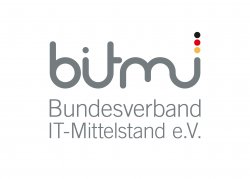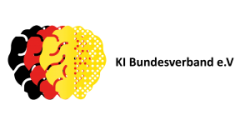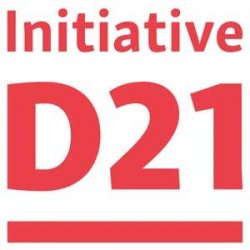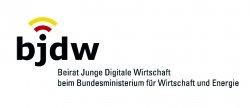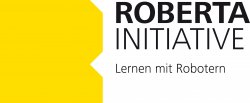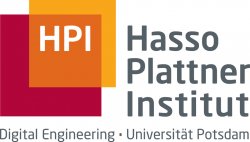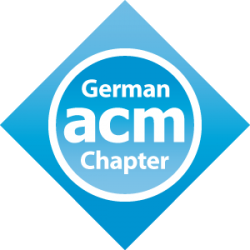
In a democratic society shaped by digitalisation, maturity cannot be achieved without an understanding of the fundamentals of digitalisation, nor without the ability to actively shape it. For this purpose, computer science and media literacy are both important, and shall be conveyed based on scientific findings and sound educational concepts.
1
In the context of digitalisation, automation and networking, traditional cultural techniques such as reading, writing and arithmetic have undergone major changes. In addition, digital competences themselves have become an integral part of general education and a fundamental prerequisite for maturity in the digital world, social participation, and professional development for each and every individual.
2
For the development of digital competences all pupils have to be able to systematically reflect, fathom and shape phenomena, objects and processes in a world that is shaped by digitalisation, from (1) a technical, (2) a socio-cultural and (3) an application-oriented perspective.
This is only possible based on concepts of sciences that are relevant to digitalisation.
3
In a democratic society shaped by digitalisation, maturity cannot be achieved without an understanding of the fundamentals of digitalisation, nor without the ability to actively shape it. For this purpose, computer science and media literacy are both important, and shall be conveyed based on scientific findings and sound educational concepts.

Statements of the signatories
Prof. Dr. Andreas Pinkwart, Minister of Economic Affairs, Innovation, Digitalization and Energy of the State of North Rhine-Westphalia
Digital literacy must become another basic skill, along with reading, writing and doing your sums. Acquiring competence in the digital age is more than just mastering the use of a smartphone. Basic programming skills and the role of algorithms are just as much a part of this as the use of digital media and the ability to judge the relevance of content.
Nadine Schön, MP (CDU), deputy chairperson of the CDU/CSU parliamentary group
Problem solving with digital tools, information and data competence, communication and cooperation, security and data protection as well as the creation of digital content: These are the components of a comprehensive digital competence that must become part of a new educational policy in Germany.
Saskia Esken, MP (SPD), leader of the Social Democratic Party of Germany
Digital sovereignty for everyone - but what is it actually? A basic understanding of digital phenomena, a sovereign, creative way of dealing with media and technologies, and a self-assured openness to change. Our learning culture needs less knowledge transfer and more empowerment to acquire experiences and competences both independently and collectively.
Tankred Schipanski, MP (CDU), speaker for the digital agenda
The differences are still great in Germany: while one school has a smartphone ban, the other uses the school cloud for interdisciplinary learning. To make progress, we need a common and comprehensive understanding of digital education. After all, it is the key to participation and self-determination in the digital world, but also to our country's innovative strength.
Dr. Anna Christmann, MP (Bündnis90/Die Grünen), speaker for innovation and technology
We need good education to enable girls and boys to actively shape our digital future. This involves more than just equipping schools with hardware and software. At the heart of digital education are the skills that empower children to ask the right questions and find new answers.
Oliver Kaczmarek, MP (SPD), speaker for education and research
All children shall have the same chances to successfully shape their lives in the digital age. That is why digital competence is needed for equal rights and maturity. Schools should already prepare for the life in the digital world, so that in the end it is not the machine that controls the human being, but the human being that controls the machine.
Anke Domscheit-Berg, MP, speaker for digital politicies of DIE LINKE
To me, digital education means that children acquire competences that allow them a high degree of self-determination and an active parttaking in the digital society.
Our children cannot be taught in museum environments while society is becoming increasingly digital.
Thomas Sattelberger, MP (FDP), speaker for innovation, education and research
Private and professional life in a digitalising world entails not only technological but also social, economic and cultural changes. It is therefore of fundamental importance to develop a new common understanding of education in the digital world across a wide range of disciplines. The consideration of the three dimensions of the so-called Dagstuhl triangle is indispensable.
Birke Bull-Bischoff, MP (DIE LINKE), speaker for education
Learning in a digital world - collectively, interconnected, secure. Everyone should be able to use digital media for discovering the world, gazing behind the digital scenes and designing them autonomously. Digital maturity includes technical, cultural-social and application-related facets and is a crucial part of general education.
Andreas Steier, MdB (CDU), member of the Enquete Commission on Artificial Intelligence (AI)
If children and young people understand digital tools at their core and actively participate instead of simply consuming devices and programmes, they will learn important things such as media literacy, data security and technical skills naturally. The confident use of digital media creates opportunities for participation and the future. This is why digital education is so important - across all topics and from early on.
Mario Brandenburg, MdB (FDP), member of the Enquete Commission on Artificial Intelligence (AI)
Education is and remains the key to a self-determined life. In our time, in which the playing field of life is changing and digitalizing, it becomes even more urgent to digitalize education itself as a key for self-determination.
Margit Stumpp, MdB (Bündnis90/Die Grünen), speaker for media and education policy
I support the Charter Digital Education because its three principles express an adequately comprehensive understanding of digital education. All of us - and therefore also pupils - can only understand and shape the rapid developments in our digital world if we know how applications work, how they interact and how they can be used individually.
Prof. Hannes Federrath, president German Informatics Society (GI)
A common and contemporary understanding of education in the digitally connected world is crucial for a constructive sociopolitical discourse on education across party and interest boundaries. With the " Charter Digital Education" we are laying the foundation for this in a broad alliance of business, politics, science and society.
Andrea Martin, Leader Watson Center Munich & Member of German Parliament Commission for AI (Enquête Kommission)
Digital tranformation is THE opportunity for our future. Not only economically, but also for society and for a more sustainable environment. However, we will only be successful with digital transformation if we not only get the buy-in from everyone involved, but also let them help shape the transformation. Sovereign citizens need digital skills, and education is key - for society as a whole, for all age groups. It is important not to focus on just one dimension of the Dagstuhl Triangle, but to use of the excellent foundation of all three dimensions.
Alexander Rabe, Managing Director of eco - Association of the Internet Industry e.V.
A world characterised by automation, digitisation and networking requires a comprehensive understanding of education, which includes technical, socio-cultural and application-related perspectives in equal measure. Meeting this understanding must be a joint effort by politics, business, science and society.
Dr. Ernst O. Wilhelm, Chairman, German Chapter of the ACM
Digital pervasiveness down to the last corner of our society creates great opportunities and freedom. At the same time, however, new dependencies and risks arise, which we first have to learn to deal with appropriately. This applies in particular to the increasing relevance of personal data and the increasing importance of IT security and data protection issues that users of digital technology have to actively deal with. For this, a basic understanding of the digital transformation is essential and digital education as an integral part of school education and beyond.



